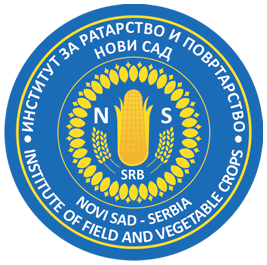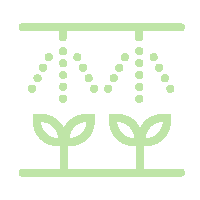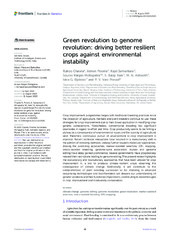| dc.creator | Chawla, Rukoo | |
| dc.creator | Poonia, Atman | |
| dc.creator | Samantara, Kajal | |
| dc.creator | Mohapatra, Sourav Ranjan | |
| dc.creator | Naik, S. Balaji | |
| dc.creator | Ashwath, M. N. | |
| dc.creator | Đalović, Ivica | |
| dc.creator | Prasad, P. V. Vara | |
| dc.date.accessioned | 2023-09-06T12:17:32Z | |
| dc.date.available | 2023-09-06T12:17:32Z | |
| dc.date.issued | 2023 | |
| dc.identifier.issn | 1664-8021 | |
| dc.identifier.uri | http://fiver.ifvcns.rs/handle/123456789/3741 | |
| dc.description.abstract | Crop improvement programmes began with traditional breeding practices since the inception of agriculture. Farmers and plant breeders continue to use these strategies for crop improvement due to their broad application in modifying crop genetic compositions. Nonetheless, conventional breeding has significant downsides in regard to effort and time. Crop productivity seems to be hitting a plateau as a consequence of environmental issues and the scarcity of agricultural land. Therefore, continuous pursuit of advancement in crop improvement is essential. Recent technical innovations have resulted in a revolutionary shift in the pattern of breeding methods, leaning further towards molecular approaches. Among the promising approaches, marker-assisted selection, QTL mapping, omics-assisted breeding, genome-wide association studies and genome editing have lately gained prominence. Several governments have progressively relaxed their restrictions relating to genome editing. The present review highlights the evolutionary and revolutionary approaches that have been utilized for crop improvement in a bid to produce climate-resilient crops observing the consequence of climate change. Additionally, it will contribute to the comprehension of plant breeding succession so far. Investing in advanced sequencing technologies and bioinformatics will deepen our understanding of genetic variations and their functional implications, contributing to breakthroughs in crop improvement and biodiversity conservation. | sr |
| dc.language.iso | en | sr |
| dc.publisher | Frontiers Media S.A. | sr |
| dc.rights | openAccess | sr |
| dc.rights.uri | https://creativecommons.org/licenses/by/4.0/ | |
| dc.source | Frontiers in Genetics | sr |
| dc.subject | climate change | sr |
| dc.subject | genome editing | sr |
| dc.subject | genome revolution | sr |
| dc.subject | green revolution | sr |
| dc.subject | marker assisted selection | sr |
| dc.subject | omics-assisted breeding | sr |
| dc.subject | QTL mapping | sr |
| dc.title | Green revolution to genome revolution: driving better resilient crops against environmental instability | sr |
| dc.type | article | sr |
| dc.rights.license | BY | sr |
| dc.citation.rank | M21~ | |
| dc.citation.spage | 1204585 | |
| dc.citation.volume | 14 | |
| dc.identifier.doi | 10.3389/fgene.2023.1204585 | |
| dc.identifier.fulltext | http://fiver.ifvcns.rs/bitstream/id/9574/bitstream_9574.pdf | |
| dc.identifier.scopus | 2-s2.0-85170644220 | |
| dc.type.version | publishedVersion | sr |


